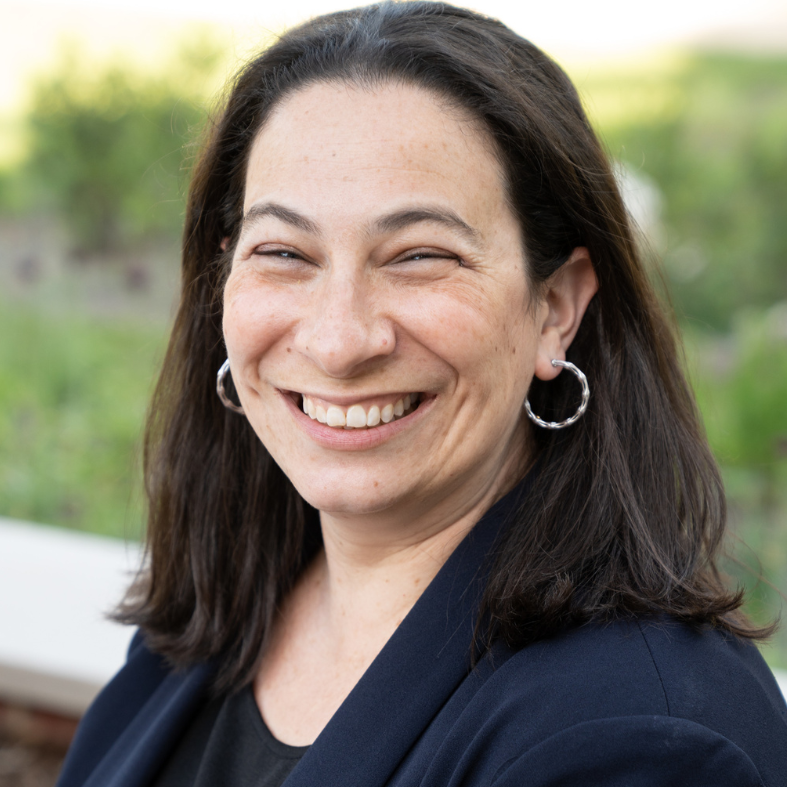A D’var Torah for Parshat Noach by Rabbi Megan GoldMarche
“Noah was a righteous man; he was blameless in his age; Noah walked with God.” — Genesis 6:9
Every time I read this line, I think: No matter how awful his neighbors were by comparison, there is no way Noah was completely righteous or unblemished.
Here is a guy who learned that the world was ending, and he didn’t try to save anyone other than himself and his family (and a lot of animals). Yes, he was following God’s orders, but if he was the cream of the crop, then shouldn’t he at least have invited a few other families into the ark? Or warned his neighbors and encouraged them to build their own arks?
I do my best to be sympathetic to Noah. He lived in a time of lawlessness. Who knows what awful events may have defined his youth? Perhaps he was terrified for his children. Perhaps he and his wife buried countless children before they ended up with three adult sons. Perhaps he was so terrified of the world that when God gave him explicit instructions for survival all he could do was follow.
I can imagine a situation where Noah’s gut instinct was to just follow God, but I cannot fathom how he just sat there as the rain started to fall and didn’t do anything to try to save anyone.
Sign up to receive (M)oral Torah in your inbox each week.
I often try to bring this same sympathy to folks I do not understand politically. Folks who have been told their whole life that immigrants are to blame for their family’s poverty. People who were raised on fear and hate. And yet, no matter how much I try to sympathize, I know using this fear as an excuse for policy is wrong. Just as I know that, no matter how much I can almost buy that Noah could be righteous for his generation, there is no way he walked with God — at least not my God.
Because my God is not the God of this parshah. My God doesn’t wipe out humanity because we are a hot mess. And I have to hope that if I was in Noah’s shoes, I would have spoken up. But I was not around then, and I am here now, so now is my chance to walk with the God I want to see in the world, the God of Psalm 146 who guards the “ger” (immigrant), sustains the orphan and the widow, and blocks the path of the wicked. This is my God, and no matter how much fear surrounds us, we as Jewish leaders need to stand with those who most need God’s protection and say we will make more room in the ark.
To get a bit more specific, let’s look at a current anti-asylum policy in the U.S. called Title 42. Title 42 was invoked by the Trump administration in 2020 to ban migrants and asylum seekers under the guise of “protecting public health.” Title 42 — this opaquely titled policy — is a public health statute originally meant to prohibit migrants from entering the country if it is determined that doing so could prevent the spread of contagious diseases.
Find more commentaries on Parshat Noach.
In March 2020, perhaps one could have sympathy for the desire to invoke such a policy, even if it would have been immoral and unjust, but today there is no evidence that this policy is protecting anyone in the U.S. from COVID-19, and there are mountains of evidence showing the brutal, inhumane effects of blocking access to asylum in our country. Today it is our duty to repeal Title 42 completely.
Seeking asylum is a protected, fundamental human right. With Title 42 in place, the U.S. has closed the doors to our ark completely as the waters rise. President Biden, who previously expressed support for asylum seekers and for repealing Title 42, has faltered, expanding the enforcement of Title 42 to placate an anti-asylum voting bloc. It’s up to us to remind him, and all elected officials, of the righteous path.
We are allowed to feel compassion for Noah, even perhaps to see him as without blemish, but we are his descendants, given the task of walking with God today, and if you want to be righteous in 5783 you cannot just look for easy answers. Join T’ruah in telling your elected officials that Title 42 is unjust and must be repealed.
Rabbi Megan GoldMarche is the Executive Director of Tribe 12, an organization that builds Jewish community for folks in their 20s and 30s in the Philadelphia area. She is a member of the T’ruah immigration working group and was ordained at JTS in 2014.


